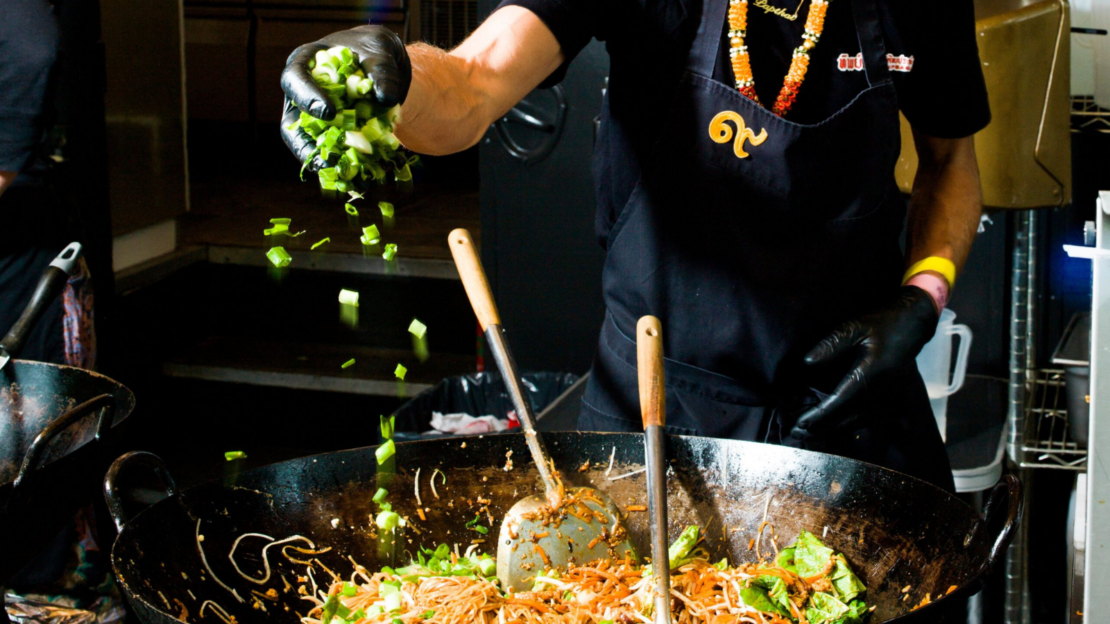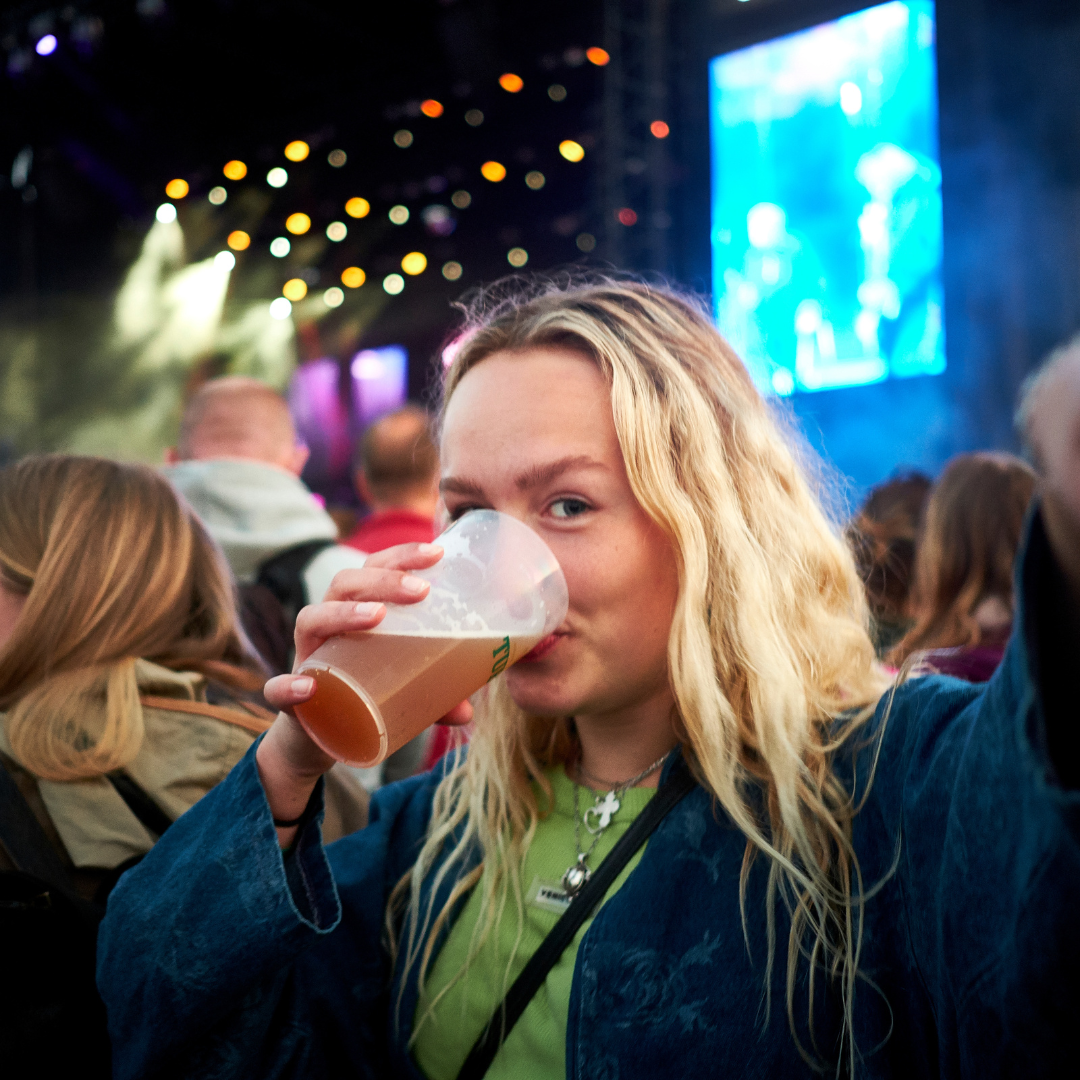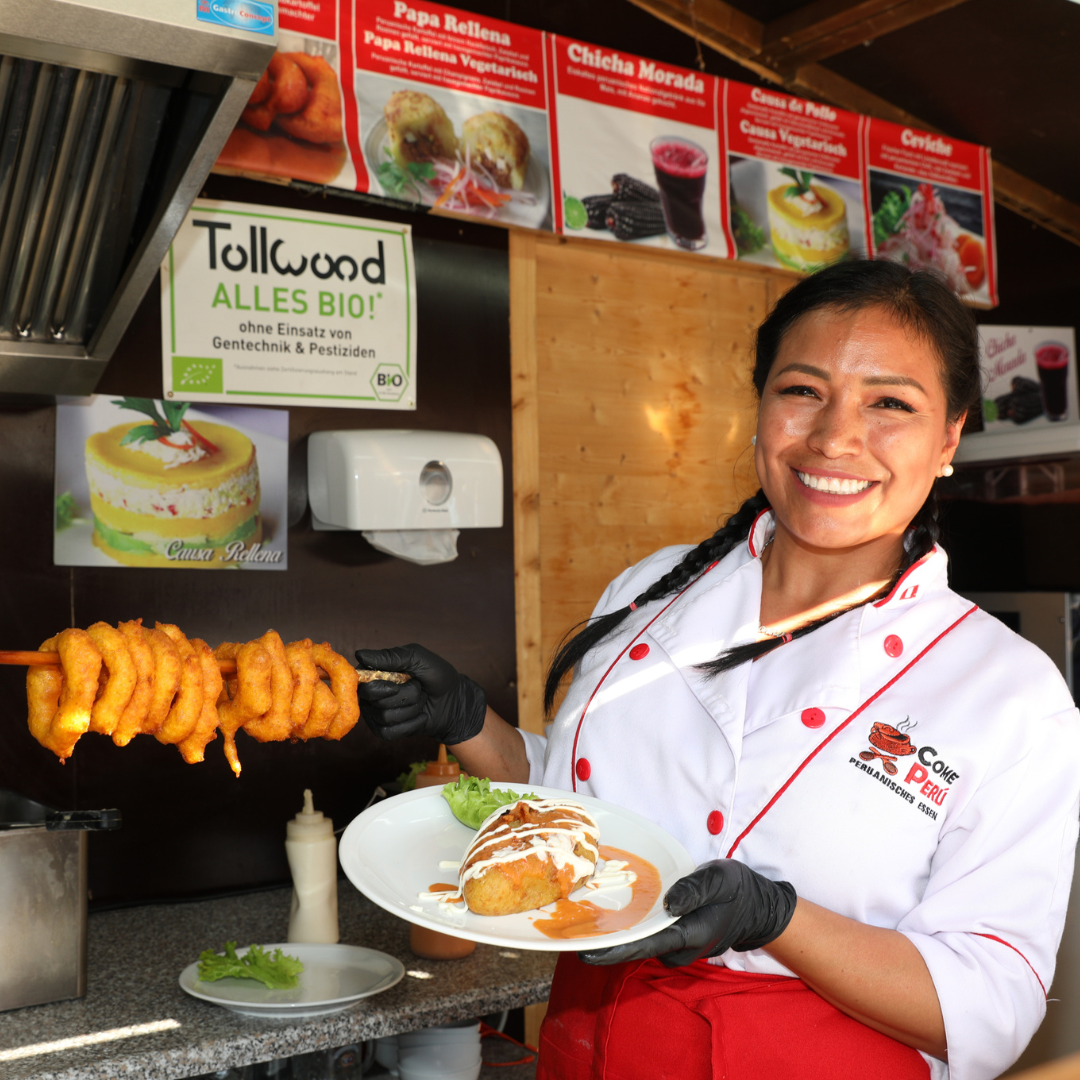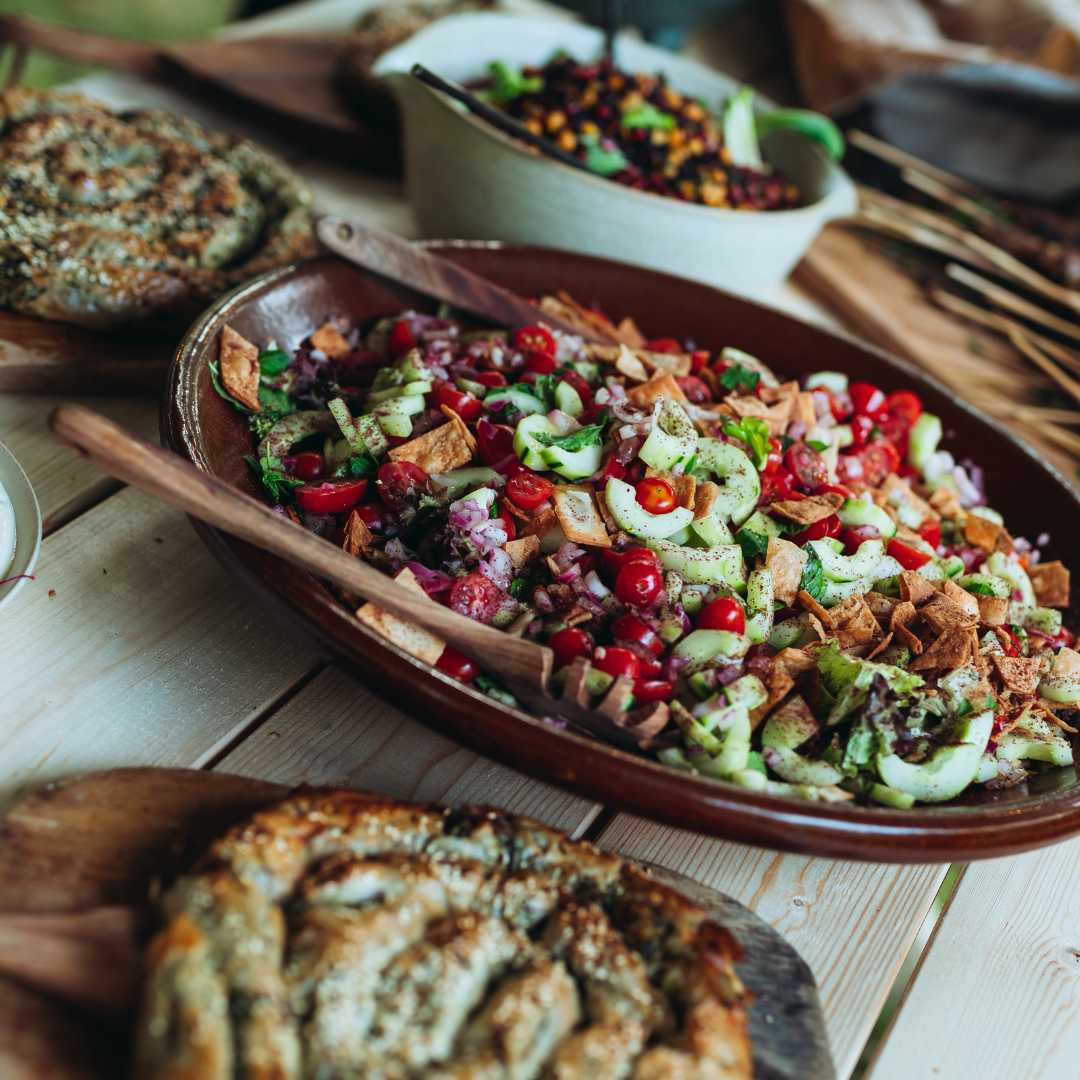In this guest blog Green Events Netherlands explores the environmental impact of food and drink at events and shares three inspirational ‘Green Festival Stories’ from the Future Festival Tools that highlight best practice in sustainable food strategy and practice at events from across Europe. With Tollwood Festival, Germany, creating an all-organic supply chain by working closely with partners; NorthSide, Denmark, offering plant-based meals only; and Way Out West, Sweden, going 100% vegetarian.
The Future Festival tools are a set of online resources designed to empower event professionals in live events across the Europe to be future-ready, with green competency, tools and personal certification. The tools were created by Green Events, Netherlands, alongside Vision: 2025 and a group of leading organisations in events and sustainability from across Europe and were funded by Erasmus. The tools include a Self-Assessment, an online training course, a trainers’ handbook as well as the compendium of Green Festival Stories.
The impact of Food & Drink at Events:
The way we are producing and consuming food is causing irreversible damage to the Earth’s ecosystems. Modern agriculture is a significant cause of deforestation, air and water pollution, soil degradation, threats to wildlife, plants, biodiversity, and climate change. According to festival food salvage charity Eighth Plate, every year in the UK alone, 400 tonnes of food is wasted at festivals. However, there are numerous ways for festivals to minimise the environmental impact of the food they offer – think about:
- Going vegetarian and labelling the CO2-emissions of all dishes
- Working with partners to create long-lasting reduction of food waste
- Building organic supply chains
- Working with local suppliers for regional, seasonal food
- Curating a nutritious array of low-emission-dishes from around the world
How? Find inspiration and guidance in these three case studies selected by Future Festival Tools.
NorthSide Festival: Reducing food carbon footprint by offering plant-based meals only
At NorthSide Festival in Denmark (35,000 capacity), all groceries for guests, artists and volunteers were 100% plant-based and organic in 2022. They don’t use meat or fish and only permit a maximum of 15% of cheese, eggs and mayonnaise per meal.
Tollwood Festival: Creating an organic supply chain by working closely with partners and restaurants
Tollwood, a large-scale urban food and arts event with summer and winter editions in Germany (capacity 1.5 million visitors over 60 festival days) only use 100% organic and Fairtrade products for their events and have cultivated a supply chain meeting their criteria by working closely with partner restaurants.
Way Out West Festival: Reducing their CO2 footprint by going 100% vegetarian
Way Out West, Sweden (daily capacity 35,000), is 100% vegetarian and has been meat-free and largely dairy-free since 2012. They have been certified in accordance with ISO 20121 since 2013 and plan to be the world’s first ‘climate transparent’ festival: This means the climate footprint for food, drink, transport, accommodation and energy, down to portaloo usage and mobile charging stations, is reported. Two companies help gather the data, with one of them focused only on food and drinks. Every dish is analysed and receives its own CO2 footprint.
Interested in more Green Festival Stories?
Future Festival Tools compiled a digital publication that identifies, categorises and shares outstanding and transferrable great practices carried out by festivals and outdoor events from all across Europe to reduce environmental impacts and operate a more sustainable business model. The coming weeks, we will share the inspiring stories within the six focus areas travel and transport, energy, materials & waste, food & drink, water, and strategy. Download the full guide.
This guest blog originally appeared on the Green Events Netherlands website February 2023 and the Vision: 2025 newsletter. Sign up to receive monthly event sustainability news, case studies and guest blogs direct to your inbox.





